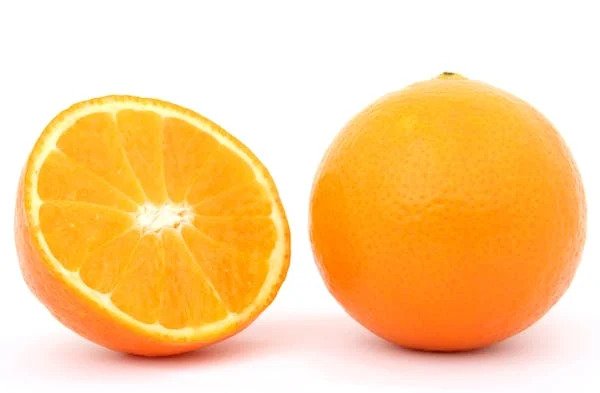Did you know that orange with seeds are actually more natural and diverse than seedless ones? Oranges, the round, sweet, and juicy citrus fruits, have been relished for centuries. Originally from Southeast Asia, oranges are now grown across the globe with Brazil, the United States, and China being the largest producers.
Check: Can You Use Olive Oil in Brownies
They are mainly classified into two categories:
- sweet
- bitter
- And further subdivided based on the presence or absence of seeds.
Interestingly, oranges with seeds are a result of natural cross-pollination, while seedless varieties often arise from human manipulation.
Knowing these aspects can add a new dimension to your understanding and appreciation of this versatile Orange fruit.
Which Type of Orange is Healthiest?
Navel and Valencia oranges are commonly considered among the healthiest types of oranges. They are both rich in vitamin C, fiber, and various antioxidants. However, blood oranges, a variety with a distinct red flesh, contain anthocyanins which are compounds that have additional health benefits, such as reducing the risk of heart disease and inflammation.
Are Seedless Oranges Healthy?
Yes, seedless oranges are healthy. They are a good source of vitamin C, potassium, and dietary fiber. The absence of seeds does not significantly impact the nutritional value of the orange. In fact, seedless varieties such as Navel oranges are often preferred for their convenience and sweet flavor.
Check: Can You Eat Asparagus Raw
Comparison Between Seeded and Seedless Oranges: Analyzing Nutritional Benefits
Both seeded and seedless oranges are nutritionally beneficial, offering a wealth of vitamins, minerals, and fiber. Seeded oranges, like Valencia, may have a slightly higher concentration of certain nutrients due to the seeds. However, for general consumption, the difference is minimal and both types are excellent choices for a nutritious snack or addition to meals.
Benefits of Orange with Seeds
Here are the benefits of eating orange with seeds
- Larger gene pool: Oranges with seeds have a larger gene pool, which makes them more adaptable to varying environmental conditions.
- Genetic diversity: The genetic diversity in oranges with seeds contributes to their adaptability and resilience.
- Rich in antioxidants: Oranges with seeds are rich in antioxidants, which help fight against free radicals in the body.
- Vitamin C: These oranges are a good source of vitamin C, which boosts the immune system and helps prevent scurvy.
- Fiber: Orange with seeds contain fiber, which aids in digestion and promotes a healthy digestive system.
- Additional nutrients: They also provide other important nutrients such as potassium, calcium, and folate.
Popular and delicious examples of orange with seeds include blood oranges, Hamlins, and tangerines. Blood oranges have a distinct red flesh, sweet-tart flavor, and raspberry-like aroma. They are a favorite in salads, desserts, and cocktails. Hamlins, with their thin skin and sweet juice, are ideal for orange juice.
Check: what is the highest temperature allowed for cold holsijg tuna salad

orange with seeds benefits
Drawbacks of Oranges with Seed
- Inconvenience: Despite the benefits, Oranges with seeds require extra effort in peeling and cutting due to the presence of seeds.
- Potential stains: The juice of oranges with seeds can sometimes cause stains on clothes or teeth.
- Shorter shelf life: Seeded varieties of oranges often have a shorter shelf life compared to seedless varieties.
- Higher cost: Oranges with seeds are usually pricier due to their natural cultivation process.
Seville oranges are an example of a less preferred variety due to their bitterness. However, they are excellent for making marmalades and flavoring liqueurs.
Varieties of Oranges with Seed
- Blood oranges: Known for their distinct red flesh, sweet-tart flavor, and raspberry-like aroma.
- Hamlins: Have a thin skin and sweet juice, making them ideal for orange juice.
- Tangerines: A delicious variety of oranges with seeds, often used for snacks or in smoothies.
- Seville oranges: Although less preferred due to their bitterness, they are excellent for making marmalades and flavoring liqueurs.
- Kumquats: Small, oval fruits with an edible peel and a sweet-tart flavor, commonly used for preserves and candied fruit.
- Clementines and satsumas: Small, sweet oranges with a loose peel, perfect for snacks or adding to smoothies.

orange with seeds
Quick Comparison Between Popular Seeded Oranges
| Variety | Taste | Best Use | Nutritional Benefits |
|---|---|---|---|
| Blood Orange | Sweet with hints of raspberry | Salads, Juices | High in antioxidants |
| Hamlin | Sweet and mild | Snacking, Juicing | Good source of vitamin C |
| Tangerine | Sweet-tart | Snacking, Desserts | Rich in vitamins A and C |
| Seville | Bitter | Marmalade, Flavoring | High in pectin |
| Kumquat | Sweet and tart | Snacking, Preserves | High in fiber, vitamins |
Check: Dunkin’ Donuts Turbo Shot
Tips for Choosing and Eating Oranges with Seed
- Look for firm, smooth oranges that feel heavy for their size when choosing them.
- A sweet aroma is often an indicator of ripeness.
- Store oranges in a cool, dry place or refrigerate to extend their shelf life.
- To remove seeds easily, cut the orange into halves and gently remove the seeds with a knife or spoon.
Is it Possible to Eat Orange Seeds?
Yes, it is possible to eat orange seeds, though they are often spat out due to their bitter taste. They are not harmful if consumed in small quantities, but are not generally considered to contribute significantly to the nutritional value of the orange.
What Species of Oranges Have Seeds and Their Nutritional Composition?
Valencia oranges are a common species of oranges that have seeds. In a 100-gram serving, Valencia oranges provide about 43 milligrams of vitamin C, 8.2 grams of sugar, 0.10 grams of fat, and 0.94 grams of protein. Another seeded variety is the Jaffa orange, which in a 100-gram serving, contains approximately 53.2 milligrams of vitamin C, 8.4 grams of sugar, 0.15 grams of fat, and 0.70 grams of protein.
Where to Buy Oranges with Seeds?
Oranges with seeds can be purchased at local farmers’ markets, grocery stores, and specialty food stores. Buying from a local farmers’ market may provide fresher options and support local agriculture. Additionally, some online retailers and grocery delivery services offer a selection of seeded oranges.
How to make Green Salad with Pomegranate Seeds and Oranges
Combining pomegranate seeds and oranges in a green salad can create a delicious and nutritious dish. Mix fresh greens like spinach or arugula with segments of oranges, pomegranate seeds, and add nuts for crunch. Drizzle with a dressing made from olive oil, vinegar, and a dash of honey for a sweet and tangy finish.
Why Don’t Grocery Stores Have Florida Juice Oranges with Seeds?
Grocery stores may not carry Florida juice oranges with seeds because there is higher consumer demand for seedless varieties, which are more convenient for juicing and general consumption. Additionally, suppliers might prioritize seedless varieties as they have a longer shelf life and are less likely to be damaged during transportation.
Conclusion
Oranges with seeds are not just the more natural choice, but also a treasure trove of nutrients and genetic diversity. Although they may require a bit more effort to enjoy, the range of flavors and uses makes it worthwhile. From the sweet and tangy blood oranges to the uniquely small kumquats, the world of seeded oranges is vast and waiting to be explored.
So, the next time you are at the market, why not pick up a few different varieties of orange with seeds
